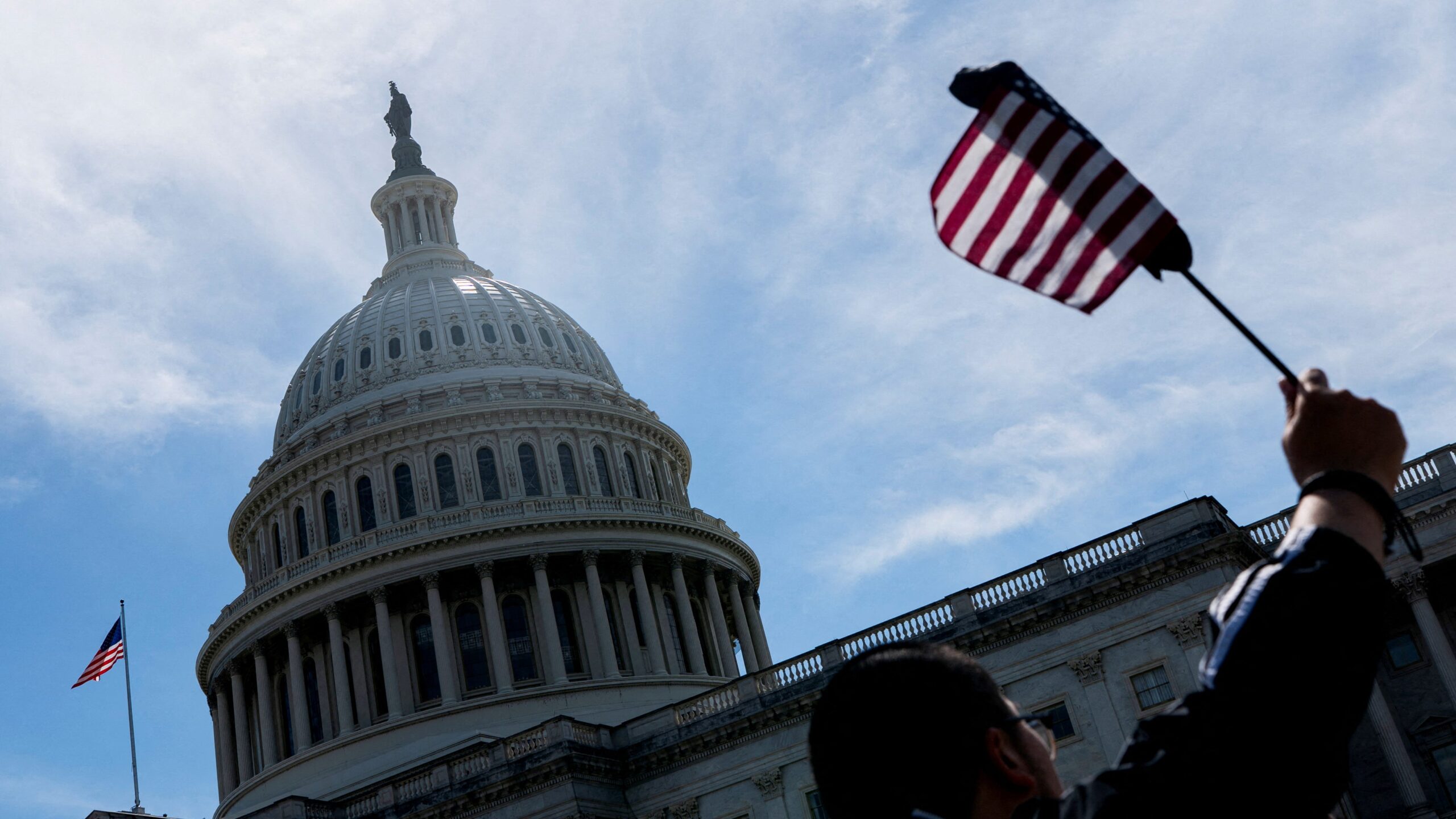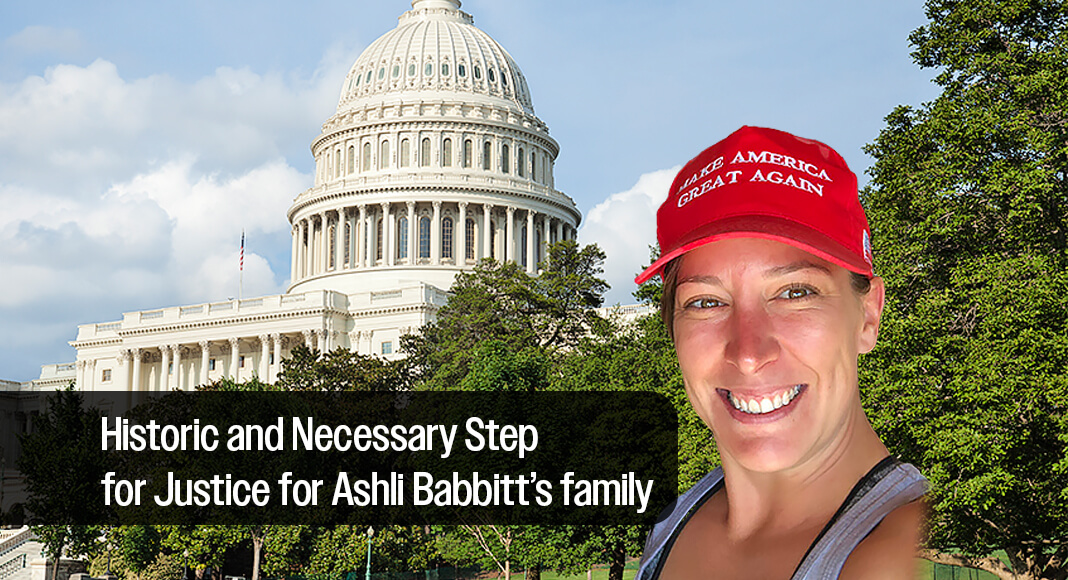
The legislative provision echoes a memo Trump signed March 11 directing the Justice Department to request bonds in all cases where judges block his policies.
House passes President Donald Trump’s ‘big, beautiful bill’
The House passed President Donald Trump’s ‘big, beautiful bill.’ It will now move onto the Senate.
- A provision in the House-passed package of Trump’s priorities would require litigants to post a bond before a judge could enforce an order blocking a Trump policy.
- Judges have blocked Trump policies in 180 cases, which would all have to be reviewed for bonds if the Senate approves the House provision and Trump signs it into law.
- Judges have discretion to set bonds in civil cases, but legal experts say they have waived bonds in lawsuits against the government because the disputes are typically over policy rather than money.
WASHINGTON – A provision in the House-passed package of President Donald Trump’s priorities would erect what one judge called a trillion-dollar barrier to challenging his policies in federal court.
At stake is whether judges can enforce their orders blocking Trump policies that are ruled unlawful, as they already have 180 times. The muscle behind court orders is that judges could find government officials in contempt if they disobey, threatening fines, sanctions or even jail.
But the obscure House provision, which even a Republican supporter of the legislation disavowedwould prevent judges from enforcing their orders unless litigants post a bond. The bond could match the amount at stake in the lawsuit, which in one case was trillions in federal grants.
Without the threat of contempt, legal experts say the Trump administration could ignore court orders with impunity.
“What this provision would do, is say that actually, no court of the United States could enforce an injunction or restraining order using their contempt authority,” Eric Kashdan, senior legal counsel for federal advocacy at the nonprofit Campaign Legal Centertold USA TODAY.
Judges, litigants and waiving bonds
The legislation deals with one of the rules governing federal civil lawsuits – known as 65(c). It calls for litigants to post a bond if they win a court order such as an injunction or a temporary restraining order to block something from happening, in case the defendant ultimately wins the case.
Judges have discretion about how much to set the bond. But the goal is to have the bond comparable to how much the defendant might lose while the case is litigated, such as a lost sale or blocked merger.
For decades judges have waived bonds in cases against the government because the lawsuits aren’t typically over money – they are about a disputed policy or the Constitution.
In February, U.S. District Judge Loren AliKhan refused a request from Trump’s White House Office of Management Budget to require a bond from the National Council of Nonprofits when she blocked the government from freezing all federal grants.
“The court declines,” Alikhan wrote.
She noted the government was “alleged to have unlawfully withheld trillions of dollars of previously committed funds to countless recipients.” But she said OMB would suffer no monetary injury from her injunction.
Why is Trump pushing for this?
Thelegislative provision in the budget reconciliation bill prohibits federal courts from enforcing contempt citations unless a bond was posted when an injunction or temporary restraining order was issued.
It applies to court orders before, on, or after the legislation is enacted, meaning it would apply to all the orders already issued.
Judges would have to weigh proposals to determine what bonds should be required in each case, according to legal experts. With discretion, a judge could impose a nominal $1 bond but the process would still take time, experts said.
“All temporary restraining orders, preliminary injunctions, and permanent injunctions where no bond had been posted no longer would be enforceable by contempt,” Erwin Chemerinskydean of law school at the University of California, Berkeley, told USA TODAY.
The legislative provision echoes a Trump memo signed March 11 that called for the Justice Department to request bonds in all lawsuits to protect against “potential costs and damages from a wrongly issued injunction.”
“Federal courts should hold litigants accountable for their misrepresentations and ill-granted injunctions,” the memo said.
Which Trump policies have been blocked in federal courts?
Trump signed 157 executive orders by May 23 – an unprecedented number four months into a presidential term – to put sweeping policies in place quickly, without waiting for legislation through Congress.
The orders led to 250 lawsuits challenging Trump’s dismantling of federal agencies and firing federal workers, swiftly deporting immigrants, ending diversity initiatives and imposing tariffs. The rulings in deportation cases include:
- U.S. District Judge James Boasberg in Washington, D.C., found probable cause April 16 the government acted with criminal contempt for his order blocking the deportation of Venezuelans who were accused of being gang members before they had a chance to fight the designation in court. The government appealed his ruling.
- U.S. District Paula Xinis in Maryland has held repeated hearings asking for updates from the government on the deportation of a Salvadoran immigrant who was mistakenly deported despite an immigration court order preventing his removal. Government officials have argued they no longer have custody of the migrant to return him because he is in a Salvadoran prison.
- U.S. District Judge Brian Murphy in Massachusetts ruled May 21 the government violated his order temporarily halting deportations to countries other than where migrants were from, after six migrants were flown to South Sudan. The government asked the Supreme Court on May 27 to lift Murphy’s block.
Trump and his allies have argued that judges are infringing on his authority to protect national security and negotiate foreign affairs with other countries.
“We hope that the Supreme Court will weigh in and rein them in,” White House press secretary Karoline Leavitt said May 29 of “rogue judges.” Trump directed the administration to comply with court orders, Leavitt said, “but we’re going to fight them in court and we’re going to win on the merits of these cases because we know we are acting within the president’s legal and executive authority.”
But legal experts said requiring the deported immigrants to post a bond would likely prohibit them from having cases heard in federal courts. If courts are no longer able to enforce their orders under the legislation, experts said the government might just ignore the orders.
“If they can simply ignore the order, they don’t have to appeal it. They can simply not do it,” said Mark Foley, a 43-year lawyer in Milwaukee. “It’s a heads they win and tails I lose.”
Fight over injunctions ‘a huge separation of powers issue’: Legal experts
The dispute over enforcing court orders adds Congress’ legislative branch to the raging debate the separation of powers between Trump’s executive branch carrying out laws and judges interpreting some of his actions as unlawful.
Trump has blasted judges who ruled against him but said he will obey court orders and appeal the ones he doesn’t like. As Trump appeals, the Supreme Court faces an unprecedented 14 emergency requests from the administration to green-light his policiesincluding four that are still pending.
In the legislative debate, legal experts say Trump’s fellow Republicans leading Congress will decide whether to hinder courts at the president’s request from enforcing orders against the executive branch.
“This is Congress saying, ‘No, we don’t think you can enforce these orders’ and they’re doing that at the strong demands of the executive branch,” Kashdan said. “It’s a huge separation of powers issue for what underlies our democracy, and all the checks and balances we’re supposed to have.”
‘I do not agree’: GOP lawmaker who supported legislation
The provision was obscure enough in the 1,100-page legislation that some who supported the bill were unaware of it.
Rep. Mike Flood, R-Nebraska, told a raucous town hall May 27 that he was unaware of the provision and didn’t support it. He added that he would urge the Senate to drop it.
“I do not agree with that section that was added to that bill,” Flood said. “I do believe that the federal district courts when issuing an injunction, it should have legal effect. This provision was unknown to me when I voted for the bill.”
Sen. Joni Ernst, R-Iowa, told a town hall May 30 in Parkersburg that the bond provision “will not be” in the Senate version of the bill because she expects the parliamentarian to rule that it doesn’t have a financial impact on the budget, which is required for this type of legislation.”I don’t see any argument that could ever be made that this affects mandatory spending or revenues,” Ernst said. “It will not be in the Senate bill.”
Senators will begin next week reviewing the legislation with a goal of sending any changes back to the House and to Trump before July 4.



